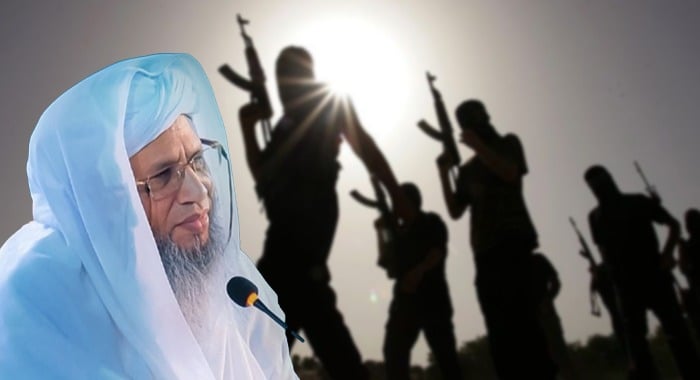Leading Islamic scholar Mufti Abdul Raheem has issued a powerful religious verdict, declaring that the state holds full Shariah-sanctioned authority to respond decisively to guerilla-style attacks in Khyber Pakhtunkhwa and Balochistan, including arrests based on suspicion and retaliatory operations against terrorists and their facilitators. In a detailed statement addressing the surge in covert militant operations, Mufti Abdul Raheem clarified that guerilla warfare defined by sudden hit-and-run attacks designed to provoke state retaliation against civilians—is not only a deceptive tactic but also one aimed at destabilizing Muslim societies. He said Islamic law allows the state to detain suspects, even in large numbers, if security threats are credible.
“Even if the state apprehends a hundred individuals based on legitimate suspicion, it falls well within the framework of Islamic jurisprudence,” he stated. He emphasized that guerilla warfare is not just a military strategy but a psychological weapon intended to turn local populations against the state by drawing state reaction toward innocents.
The scholar underscored that attacks on mosques, suicide bombings, and acts of terror demand an immediate and lawful response from the state. “The protection of society and public peace is a religious duty,” he affirmed.
Addressing concerns about collateral damage, Mufti Abdul Raheem explained that if an innocent life is lost in the course of a lawful operation, the army is religiously bound to pay blood compensation (diyyah), but it does not bear the sin of intentional killing. He further warned that those who publicly support terrorists even through social media share equal responsibility in the crime.
“The sin of murder does not lie with the assassin alone. Those who enable, facilitate, or justify such acts are equally accountable,” he said, urging locals to disassociate from militant activities and become advocates of peace.
He concluded that guerilla warfare is deliberately orchestrated to incite local unrest and that state institutions are carrying out operations within the legal and religious boundaries defined by Islam.
This religious endorsement comes at a critical moment, reinforcing the moral and legal legitimacy of Pakistan’s counterterrorism efforts and calling on citizens to stand united against the forces sowing division and violence.





